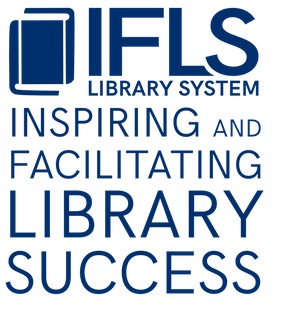Both Darien Becker (Prescott) and Judy Kraetke (Park Falls) took the four-week online UW Madison iSchool course The Next Chapter: Programs and Services for Older Adults with instructor Angela Meyers this spring, and both wholeheartedly recommend the class to others! Judy and Darien attended with scholarship help from IFLS, provided by the Wisconsin Department of Public Instruction with funds from the Institute for Museum and Library Services.
Can you think of one or two things that especially stood out for you about the content of this class? Anything you are hoping to implement, or anything you’ve already started?
Darien: I was most interested in how to more effectively use library space to benefit older adults. It seems like this topic is at the forefront of a lot of our minds, especially with the series of webinars/workshops that David Vinjamuri had done about the big opportunities that small spaces have.
I really enjoyed the final project because it challenged me to explore literature regarding self-perceptions of older adults and how to combat negative biases. I would like to implement my final project, which was a plan to have a Senior Resource Fair in early October to help older adults and their allies to prepare for entering or continuing in the new stage of their lives (65+), particularly targeting those who are preparing to sign up for Medicare.
Judy: I am going to take a three-part training course this summer for learning how to run a Memory Café, and I’m working with someone from the Aging and Disability Resource Center in Price County who is going to help me get started doing a Memory Café program at the library this fall. It sounds like that is something people really love. I will work with my contact at the ADRC to find out what kind of Memory Café program will be most needed in this area.
I also learned about how to make the library more accessible to older adults. The Friends of the Library is funding some purchases. I never thought of it, but having a wheelchair for people who don’t normally use one, but would like to stay at the library for longer but they just can’t because they can’t stay on their legs for that long. I ordered two medical rolling stools—these are good to have in the library when you have to use the bottom shelves in use (it is hard for some people to get down that low). I got one for the DVD area and one for the collection on the lower shelf. I also purchased a shopping cart! I never in a million years would have thought to have something like that. I have a few patrons who come every few weeks and stock up. It can be difficult to carry everything. All the equipment will be in the front area for anyone who wants to use it.
Other simple and relatively inexpensive ideas I hadn’t thought of before: increase the size of the font on spine labels, a larger keyboard for people who have a hard time seeing. I’m also interested in having programs to encourage adults to start writing things down to share with kids. Maybe a round-table discussion with folks. I even want to start doing it myself, collecting my own stories for my grandkids. This course was especially helpful because Park Falls is becoming, as a friend said, The Unexpected Retirement Community. Young people are leaving because there aren’t many employers.
Bonus Intel:
Darien said it was a great experience to learn more about how to market programs for older adults and what programs would be of interest to them. Judy said this class was worth the work and the money! She recommends it to anyone looking for this kind of information: “Angela was a great speaker, I found I was looking forward to every week. There was so much we went through in four weeks time!”
FYI: Amount of time on homework per week: Judy says about 3 hours/week is a good amount of time to budget.
